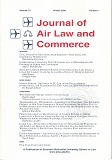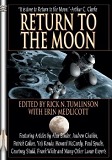FAQ #15: You can't farm Lunar land, and Earth doesn't need its minerals. So how could Lunar land be put to profitable use?
Basic industries like farming and mining are the first things people think of when considering putting land to profitable use, but they are very far from being the only way to make a profit on land. In fact, if you'll think about the United States today, a surprisingly small percentage of the land is being put to profitable use for farming or mining ...and it's an even smaller percentage of the profits actually being made on land. Far more profits are being made on U.S. land by people who use it as something to speculate on or invest in.
Most Lunar land will first be put to profitable use that way: as something to speculate on or invest in. Karl Marx might have thought that shameful, but I don't. It is a perfectly good way to put land to profitable use. ...and if it results in opening up the final frontier for all mankind, it would be wonderful!
Later, if land speculation and investment can pay to develop the infrastructure, many, many other uses for the land will open up. A few we can foresee: tourism related businesses, facilities for astronomy and scientific research, facilities for producing TV broadcasts for Earth (Lunar gravity will produce fascinating entertainment and sports programs), a landing field for visiting ships, with repair and re-supply facilities for those ships. Solar power collectors will take a lot of land, and location will matter a lot.
Hydroponic farming for the inhabitants of the Lunar base will be profitable, and so will mining of things they need, especially water. Small factories will appear to produce things that originally had to be imported from Earth, starting with oxygen and construction supplies. The first export products will probably be small Lunar rock souvenirs or jewelry. Later, maybe Helium 3 could be exported.
But the most profitable uses will appear in the future and are certainly beyond our ability to predict now. Could Ponce De Leon have predicted that that "worthless" swamp in the middle of Florida would end up as Disneyland? Would you expect Lewis and Clark to predict that those "worthless" snow covered mountains would eventually find very profitable use for ski lodges?

Questions & Answers about Lunar Land Claims Recognition
Note: The first 25 FAQs below are reprinted from the Space Settlement Initiative ![]() website.
website.
What is the real purpose of enacting a Lunar land claims recognition law?
What does international law say about private property ownership in space?
Can there be property ownership without national sovereignty?
What if other nations refuse to recognize land claims in space?
Why not allow smaller, limited land claims for easier steps than settlement?
Could lunar land really be worth enough money to make a difference?
What conditions should the US set for recognition of a claim?
How much land should a settlement be able to claim... and why?
Are the weaknesses and compromises in this plan likely to be permanent?
Could other sources of revenue be enough without land claims recognition?
What effect would this have on NASA and the aerospace companies?
More FAQs
The FAQs above cover basic questions about Lunar Land Claims Recognition. The following questions address more advanced issues.
If we really went to the Moon in 1969, why aren't we there now?
What were the assumptions before the Outer Space Treaty, (e.g. Robert Heinlein)?
Will changing how NASA works bring the taxpayers back on board?
Could this law force the US to recognize a foreign government's Lunar land claim?
Would Article VI of the Outer Space Treaty prohibit Lunar land claims recognition?
| Back from You can't farm Lunar land... to Frequently Asked Questions (FAQs) Back from You can't farm Lunar land... to the Space Settlement Institute home page |




